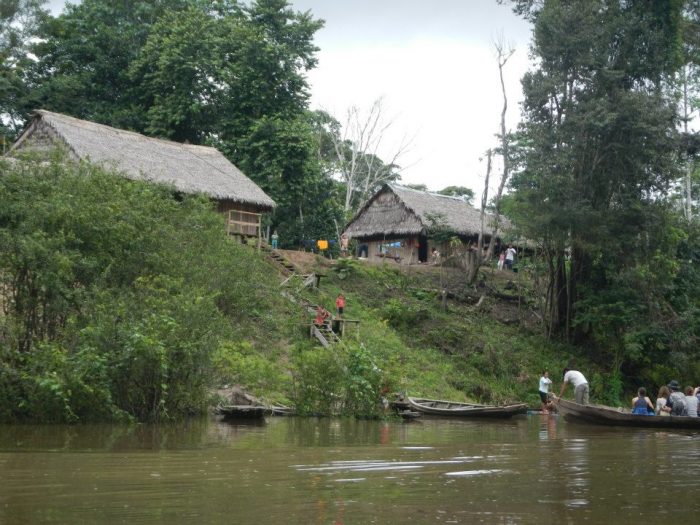I think that being content is sometimes like giving up.
Such as, if you have a relationship or job that isn’t fulfilling, but you’ve decided that it’s good enough. Or perhaps you want to do something but are told that it’s too risky, foolish, or unattainable, so you don’t do it. These perspectives are disempowering, and we need to consider that our passions and desires are valid and worthy to pursue.
In my observations over the years, I’ve found that there are three groups of people in how they relate to contentment.
The first group are people who find contentment easily and with seemingly no effort. Perhaps it’s something in their genetics, or possibly a learned behavior from childhood that makes it so easy for them.
The second group constantly struggle with being content because of feeling like a victim. It could be that they have anxiety, physical or emotional struggles, economic issues, or any number of challenges.
The third group are those who have put in place routines or rituals that help them bring about a state of contentment. It is this last group of people that actively find contentment. They choose to master their minds and their emotions to bring themselves into a place of peace, which they manifest through their own will.
A number of years ago, I travelled to the Peruvian Amazon to take part in an eight day retreat. It took my friend and I about two full days to journey by plane, taxi, speed boat, and canoe, before we arrived in a remote area of the jungle.
A native family lived at and ran the center. They took boats to bring in drinking water, used water from the river for bathing and washing clothes, harvested food from the jungle, and cooked over a fire. Initially, I felt very anxious about being isolated from the world and cut off from being constantly connected. But after a short while with this family, I noticed how I started to relax and be more present with everyone. I began to realize that this family were some of the happiest people I’d ever known. They laughed a lot, worked hard, and were kind and loving people. They had few material possessions, but they had the most joyful and content lives I’ve ever encountered.
The family appeared to have a seamless connection between work and play. Some were cooking meals, some were mending the boats or buildings, and they all shared the duties of raising and guiding the children. I asked one of the young men what he did, and with a smile, his response came in broken English as, “I carry things. You want me to carry something?” This strong young man was grateful for his strength and he focused his mind on doing the best job he could for his family.
These people were not just content, they had what I call “active contentment.” Active contentment requires a person to take responsibility for all aspects of their life and to actively work on being content. It is a process of evaluating our life repeatedly, moment by moment.
We need to consider who we are and what we desire to experience, then make a decision, and a plan of action that will adjust our environment so it moves us toward that goal. This process is ongoing and has no end—after all, it’s actually pretty awesome to take control of our life in a proactive way!
I stumbled across the idea of active contentment quite by accident. I had spent several days dwelling on the unfairness of how I felt my family treated me, recycling my thoughts over and over about each interaction. It was a low spot in my life, and in the midst of this, an emergency came up in my house where our sump pump failed and I needed to fix it.
When I finished fixing the pump, I remember sitting down to relax, and suddenly realized that all of the feelings of failure and doom from earlier had faded. I began to think about the significance of this, because it was confusing as to where all the energy had gone. I realized then, that I was the one who was creating the heavy negative energy. Regardless of how my family actually behaved, I was the one who was stuck in place, creating the feelings that I was experiencing.
Through the practice of active contentment, I was able to discover that the root of my issues was in my own lack of self-esteem and self-love. I felt that I never measured up to my own expectations, nor the perceived expectations of others.
We are responsible for our own active contentment, which means that we have the freedom to choose how we are going to feel content.
Thinking about what should be done, believing life would be better if someone else does something differently, or ruminating about making a bad choice we made will keep us stationary and build discontent. The Universe is in constant motion and new things can only come to us when we allow and promote that same motion.
Whether it is our living situation, family, economic status, relationship, or any number of things, it is our choice as to how we respond. If you struggle with finding peace, look for ways to actively bring about contentment through taking action. Some easy things to do include going for a walk and looking at the sky, sweeping the garage out, or maybe even hand washing the dishes to see the result of your efforts.
Actively take your power and choose how to move through the challenge to make incremental positive changes. These incremental changes will allow you to feel successful and to see the fruits of your labor. Each action step you take will keep you grounded in reality and enable you to make solid and informed decisions. Repeating these steps will build upon themselves to bring about contentment and joy in your life.
You might surprise yourself at how good you feel in the end.
 Share on bsky
Share on bsky




Read 10 comments and reply